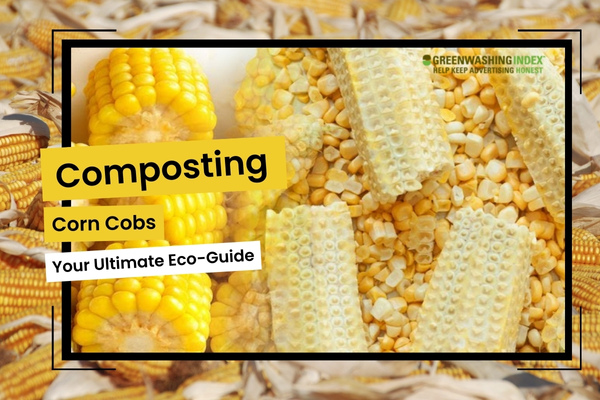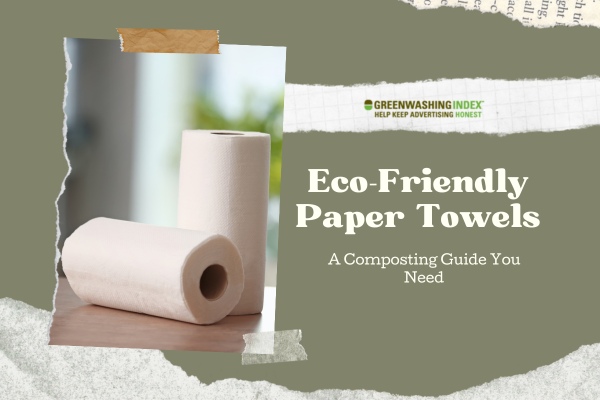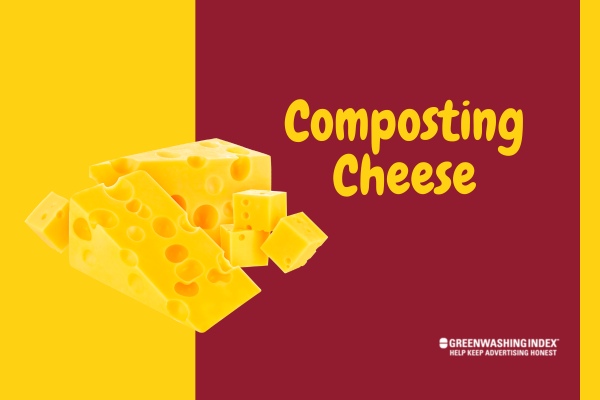When you think about your kitchen leftovers and garden waste, what do you envision? For many of us, corn cobs might come to mind as that leftover bit that often ends up in the trash. But wait, there’s another way! I’m here to take the mystery out of composting corn cobs.
It’s not just a sustainable waste management practice; it’s a fantastic journey toward eco-friendly living. So let’s dive into the adventure headfirst—have you ever considered turning those tough cobs into black gold for your garden? Stick around, and I’ll show you how those humble cobs can enrich your soil and reduce landfills all at once.
Turning corn cobs into compost is easier than most people think. With just a bit of preparation and patience, those seemingly stubborn kitchen scraps can transform into nourishing material for your garden.
The key is understanding the right techniques—chop ’em up small, balance them with other green materials, and give time for nature to do its thing—mixing carbon-rich cobs with nitrogenous stuff like vegetable peels. Before long, you’ll have rich compost ready to energize your plants!
An Overview of Corn Cob Composting
Composting is a fundamental aspect of sustainable waste management that converts organic matter into nutrient-rich soil amendments. Through this process, we give back to the earth and support the cycle of growth.
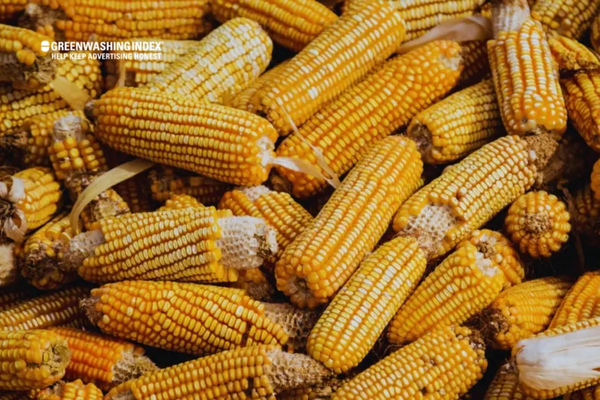
Now, let me wade into what composting is all about. It’s basically nature’s process of recycling decomposed organic materials into a rich soil known as compost.
Anything that was once living will eventually decompose, and composting simply speeds up this natural process by providing an ideal environment for bacteria, fungi, and other decomposing organisms to do their thing.
Why is composting beneficial?
- Reduces Waste: Composting transforms your kitchen scraps and yard waste into something useful instead of sending them to landfills, where they’ll contribute to methane production – a potent greenhouse gas.
- Enriches Soil: The compost you create acts like a multivitamin for your garden. It improves soil structure moisture retention and provides plants with beneficial nutrients.
- Eco-Friendly: It’s as green as it gets! Composting uses natural processes to reduce our carbon footprint.
So essentially, you’re turning what would be waste into wealth for your garden — talk about an investment!
Value of Corn Cobs in Compost
Corn cobs might seem tough and unyielding at first glance, but in the world of composting corn cobs, they’re quite the treasure. Corn cobs bring structure and richness to your pile.
Here’s why including corn cobs in your compost pile makes sense:
- Carbon Rich: They are brimming with carbon, which creates energy for those hard-working decomposers.
- Promote Airflow: Their bulky nature keeps the pile from compacting, which optimizes airflow — which is critical for efficient decomposition.
- Slow Decay: Yes, they take longer to break down than lettuce leaves or apple cores, but that slow decomposition means they provide ongoing nutrients long after other materials have disappeared.
How can they fit snugly into your eco-friendly composting routine?
- Balance Them Out: Since corn cobs are high in carbon, balance them with nitrogen-rich materials like vegetable scraps or coffee grounds.
- Chop Them Up: Smaller pieces equal faster decomposition – so if you can break those cobs down before tossing them in the bin, do it!
- Be Patient: Because decomposition of corn cobs takes time, don’t fret if your cobs are hanging around longer than other scraps.
Remember, folks: good things come to those who wait!
Preparing Your Corn Cobs for Composting
When it comes to turning your kitchen scraps into nutrient-rich compost, few things are as satisfying as knowing you’re contributing to sustainable waste management. Corn cobs may not decompose as quickly as other organic materials, but with the right preparation, they can become valuable assets to your compost pile.
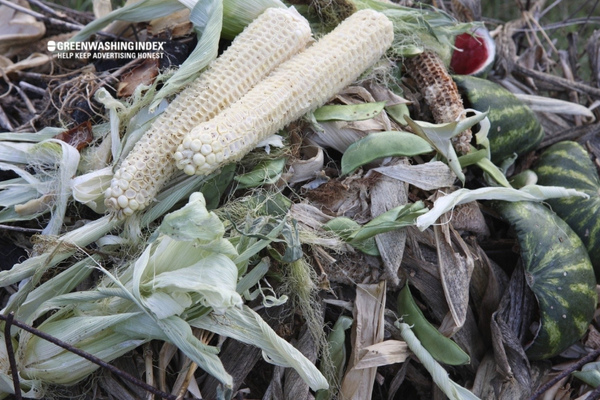
Let’s dive into how you can prepare these sturdy remnants of summer barbecues and family gatherings for successful composting.
Selecting the Right Corn Cobs
You’ll want to start by selecting the right kind of corn cobs—those that will most effectively break down and enrich your compost pile.
Here’s what to look out for:
- Freshness: Fresher cobs decompose more efficiently than older, drier ones.
- Pesticide-free: Whenever possible, choose organic corn cobs that haven’t been treated with chemicals.
- Mold and Disease Free: Inspect the cobs for signs of mold or disease that could spread throughout your compost pile.
These points are crucial since introducing chemicals or diseases into your compost could negatively impact its quality and also harm the plants that will later feed on this natural fertilizer.
Correct Preparation
Once you’ve selected healthy, chemical-free corn cobs, it’s time to prep them properly before adding them to your eco-friendly compost bin. Here’s how:
- Shred or Break Down: First off, keep in mind that corn cobs are tough! They take a lot longer to break down compared to other kitchen waste like fruit peels or coffee grounds. To speed up their decomposition:
- Chop them into smaller pieces using a sturdy knife (watch those fingers!).
- If available, use a shredder designed specifically for tougher garden waste.
- Soak Them Up: Giving shredded cob pieces a good soak can help hasten their decomposition once they’re in the pile.
- Layer Judiciously: Always mix your shredded corn cob bits with an ample amount of “green” material like vegetable scraps or grass clippings—as well as “brown” materials like dry leaves or straw—to balance out moisture levels and encourage microbial activity which is vital in breaking down those tough fibers.
- Keep an eye on the moisture level after adding them: The key here is maintaining a balance; you don’t want it too wet or too dry.
- Consider Companions: Some avid composters suggest introducing worms (vermicomposting) if you have larger quantities of corn cabs since these little critters can help break down organic matter faster.
By shredding and balancing out materials in your bin according to these guidelines, you’re ensuring quicker decomposition of corn cobs without disrupting the overall composition and effectiveness of your compost heap. And there you have it — perfectly prepared green gold just waiting to bring vitality back to the soil!
Remember: patience is key because even with preparation like this — composting corn cabs does take its sweet time compared with softer organics!
Rest assured that these efforts foster sustainable waste management while delivering eco-friendly benefits straight from our own kitchens—and that’s worth every bit of effort we put into organic recycling methods.
Steps in Composting Corn Cobs
When you think about composting kitchen scraps, you might not immediately consider corn cobs. After all, these sturdy leftovers from sweet summer barbecues seem like they’d be tough to break down.
But fear not! Here’s how to turn those corn cobs into efficient compost material that can offer nutrient-rich benefits to your garden.
Turning Kitchen Scraps Into Efficient Compost Material
The truth is that composting corn cobs is a fantastic way to add carbon-rich “brown” material to your compost pile. Here’s how I transform my leftover corn cobs into garden gold, step by step:
- Collect Your Corn Cobs: Save those leftover pieces after enjoying some delicious corn on the cob.
- Shred or Chop: To speed up the decomposition of corn cobs, I recommend shredding or chopping them into smaller pieces.
- Create Layers: Begin with a layer of brown materials like dried leaves at the bottom of your compost bin or pile.
- Add Nitrogen-Rich Greens: Alternate layers of green materials, such as vegetable scraps or grass clippings, with your shredded corn cobs.
- Moisture Check: Make sure the pile has enough moisture – it should feel like a wrung-out sponge but not sopping wet.
- Aeration Is Key: Turn and fluff the compost every few weeks with a fork to provide the oxygen needed for decomposition.
- Patience Pays Off: Depending on various factors like climate and cob size, it could take a few months to over a year for the cobs to fully decompose.
By following these steps systematically and being patient, you’ll be well on your way to enriching your gardening efforts with homegrown compost!
Mistakes to Avoid When Composting
Sometimes, enthusiasm can lead us astray when we start tossing things into our compost piles willy-nilly. To keep it real when composting corn cobs, let me share some no-nos along with solutions:
- Avoid tossing in whole corncob:
- This mistake will simply prolong their time at the decomposition dance party
- Solution: Break them down physically before adding them
- Neglecting carbon-to-nitrogen ratio:
- Piles overly abundant in nitrogen may get smelly and attract pests
- Solution: Remember to balance out greens and browns
- Over-moistening:
- Too much water snuffs out air pockets critical for aerobic bacteria
- Solution: Aim for moist but not soggy; think of a damp sponge
- Lack of turning:
- You’ll end up slowing down decomposition by starving it of air
- Solution: Turn regularly for proper oxygen flow
- Impatience:
- Decomposition takes time; lessening interest may lead you to abandon your project.
- Solution: Be consistent with maintenance and give nature its due course
Mind these common pitfalls that can trip up even seasoned gardeners now and then when eco-friendly composting. Stick with best practices for organic recycling methods, including proper preparation and maintenance, which will ensure those tough little cylinders eventually crumble back into the earth, completing their cycle in a sustainable waste management fashion.
With consistency and care applied throughout this process, before long, you’ll find yourself harvesting some truly epic black gold from what was once just humble barbecue remnants!
Maximizing Your Harvest With Proper Use Of Composted Materials
When you’ve successfully transformed your kitchen scraps, including those tough corn cobs, into rich, fertile compost, it’s a cause for celebration.
But now comes the crucial part – putting this garden gold to work in a way that maximizes the health and yield of your plants. Here’s how you can make the most of your freshly made compost.
Using Your Freshly Made Compost
Once the composting process has worked its magic and you’re left with dark, crumbly, and earthy-smelling material, it’s time to get planting. But hold up! To really reap what you’ve sown from your hard work (and all those corn cobs), follow these guidelines:
- Timing is Everything: The best times to add compost are before planting new beds and at the beginning or end of a growing season as a top dressing for your plants.
- Mix It Up: If starting a new garden bed or potting some plants, mix in the compost with soil at about one-third compost to two-thirds soil.
- Go Easy on Seedlings: For young plants or seedlings that are more sensitive, use a less concentrated mixture (around 10%-20% compost) to avoid burning delicate roots with nutrient overload.
- Top Dressing Magic: Spread a half-inch layer of compost over existing plant beds before rain or watering to help nutrients seep down to the roots gradually—perfect for perennials.
Don’t just cast it anywhere:
- Spot Treat: If certain parts of your garden have poor soil quality or sickly plants, address these areas with extra compost for targeted nourishment.
Here’s how much you might want:
- Quantity Matters: A common rule is about 40 pounds (an inch-thick layer) per 100 square feet annually. Adjust based on observation; overdoing it can lead not only to nutrient run-off but also to potential environmental harm.
Maximize every ounce:
- Integrated Plant Health Management: Before reaching out for fertilizers or pest controls next growing season, assess if simply adjusting your use of homemade compost could solve some issues naturally.
And finally:
- Sustainability Win-Win: Remember that using home-grown compost keeps organic waste out of landfills and nourishes your personal slice of nature—a perfect circle of sustainability!
Following these pointers when applying fresh-out-of-the-pile goodness around your vegetables and flowers alike will go far. Not only will you enhance plant growth and garden vibrancy without chemical fertilizers—but you’ll also celebrate every kernel’s journey from leftover cob at dinner to life-giving ingredient in tomorrow’s harvests!
FAQs
How long does it take for corn cobs to decompose fully?
Corn cobs can take a while to break down completely, typically from a few months to over a year, depending on the composting conditions, such as moisture, temperature, and shredding.
Can I put cooked corn cobs into my compost pile?
Absolutely! Cooked corn cobs can be composted just like raw ones. Just make sure they’re not coated in butter or oils, as that can attract pests.
Does the size of the corn cob affect its composting process?
Sure does. Smaller pieces decompose faster than larger chunks. It’s beneficial to chop or shred your corn cobs for quicker decomposition.
Are there any pests I need to watch out for when composting corn cobs?
Yes, critters like rodents may be attracted to your compost if it’s not managed properly. Ensure your pile is well-balanced with greens and browns and covered adequately.
Conclusion
After breaking down the entire journey of composting corn cobs, I hope I’ve shown you that turning these sturdy leftovers into nutrient-rich compost doesn’t have to be daunting. It’s a fantastic way to engage in sustainable waste management and give back to Mother Earth.
With patience and the proper techniques, you can transform your corn cobs from kitchen scraps into garden gold, promoting a healthier garden and a happier planet.
Key Takeaway Points:
- Understand the intricacies of eco-friendly composting
- Select and prepare corn cobs effectively for your pile
- Follow simple steps for efficient decomposition
- Learn how to avoid common composting errors
- Utilize your organic recycling methods successfully.

